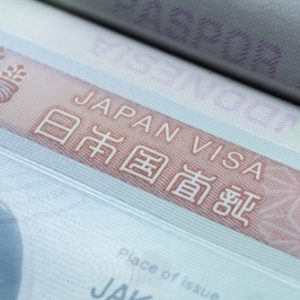Exploring Cases Where Expatriates Do Not Need to Acquire the ‘Intra-Company Transfer’ Residency Status in Japan
September 14, 2023
Short-Term Stay as an Alternative:
Expatriates seeking to work in Japan don’t always require the “Intra-Company Transferee” status of residence. Short-term business activities conducted in Japan fall under a short-term stay category. These short-term activities include business contacts, negotiations, contract signings, after-sales service, advertising, and market research, conducted as part of a foreign company’s business in their home country.
Japan has visa exemption measures for 69 countries and regions, allowing passport holders from these areas to enter Japan for short stays without applying for a visa.
Visa waiver periods vary, with 15 days for India and Thailand, 14 days for Brunei, 30 days for the United Arab Emirates and Qatar, and 90 days for most other countries/regions.
Some countries like Mexico, Ireland, Austria, Switzerland, Germany, Liechtenstein, and the United Kingdom allow stays of up to 6 months under the Visa Waiver Arrangement, but longer stays than 90 days require an extension application at the Immigration Bureau before the initial stay expires.
Remuneration as a Key Factor:
The presence or absence of remuneration is a significant determining factor for the type of stay.
If an individual receives remuneration for services rendered in Japan, regardless of the nature of the activity, the duration, or the amount involved, it does not qualify as a temporary visitor status. In addition, the payment of remuneration may be made from either Japan or abroad, so even if the remuneration is paid from a head office or company overseas if it is paid in exchange for work done in Japan, it does not qualify as a temporary visitor status, and would be considered an activity outside the temporary visitor status. If an expatriate comes to Japan to provide after-sales service (e.g., machinery installation or maintenance) under a regular overseas salary, this would fall under temporary visitor status. No remuneration is given for the activity in Japan, and it is a secondary activity related to the primary overseas business.
Important Notes for Short-Term Stays in Japan:
In Japan, a residence card is issued to individuals staying for over three months, which is essential for various activities like accessing public services, opening bank accounts, getting cell phone contracts, and signing housing agreements.
Short-term visitors, who have a maximum stay of 90 days, do not receive a residence card. As a result, the above-mentioned activities, such as opening a bank account, cannot be performed.
In addition, after applying for a certificate of eligibility for intra-company transferee, if a certificate of eligibility is issued while the applicant is in Japan for a short-term stay for a business meeting, etc., changing one’s status of residence from short-term visitor to “Intra-Company Transferee” while in Japan is generally not allowed. The standard procedure involves double examinations by the Ministry of Justice (Immigration Bureau) and the Ministry of Foreign Affairs (Japanese embassies/consulates overseas).
However, in exceptional cases, individuals may be permitted to make this change if there are “compelling special reasons,” such as humanitarian needs.







